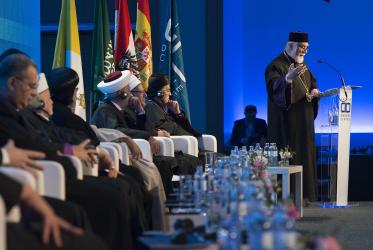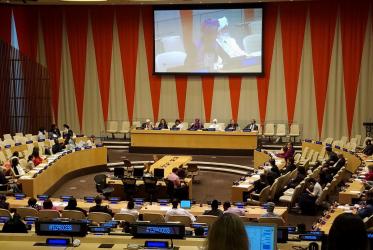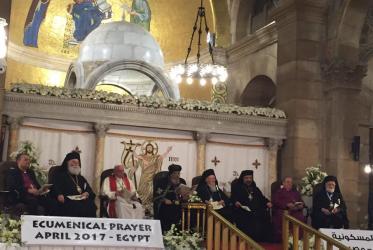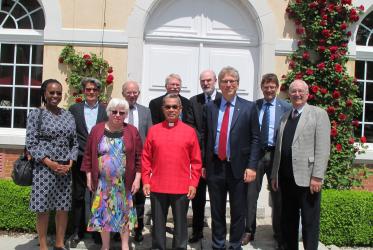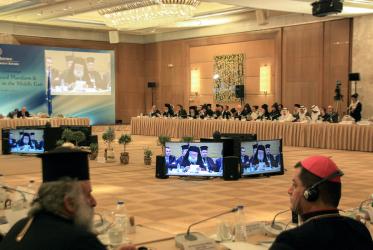Displaying 21 - 40 of 59
Walking together against hatred and violence
26 February 2018
WCC delegation visits China
04 January 2018
Historic ecumenical prayer in Egypt for peace and unity
30 April 2017
WCC general secretary speaks on religion and discrimination
14 February 2017
Grand Imam calls for collaboration against violence and poverty
06 October 2016
Religion and Violence Prevention in the Americas
28 February - 01 March 2016
Washington D.C., United States - Attendance by invitation only.
Symposium focuses on religion, violence, extremism
04 February 2016
International conference addresses challenges in the Middle East
22 October 2015
Indigenous faith leaders reflect on resilience and climate change
23 September 2014

